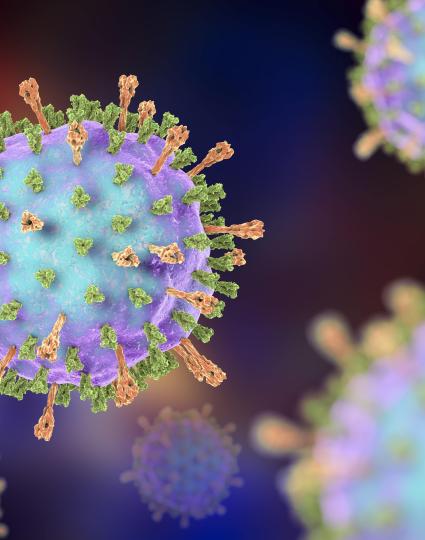Mumps
About the mumps (MMR) vaccine
- The mumps vaccine protects against mumps, a contagious disease caused by the mumps virus.
- In the Yukon, mumps vaccination is a part of the combination immunization known as MMR, which protects infants and children from measles, mumps and rubella, all in one shot. This live vaccine contains a weakened form of these three viruses, which do not cause infection.
- The vaccine is a 2 dose series, usually offered when a child is one year of age and then again before your child begins school.

